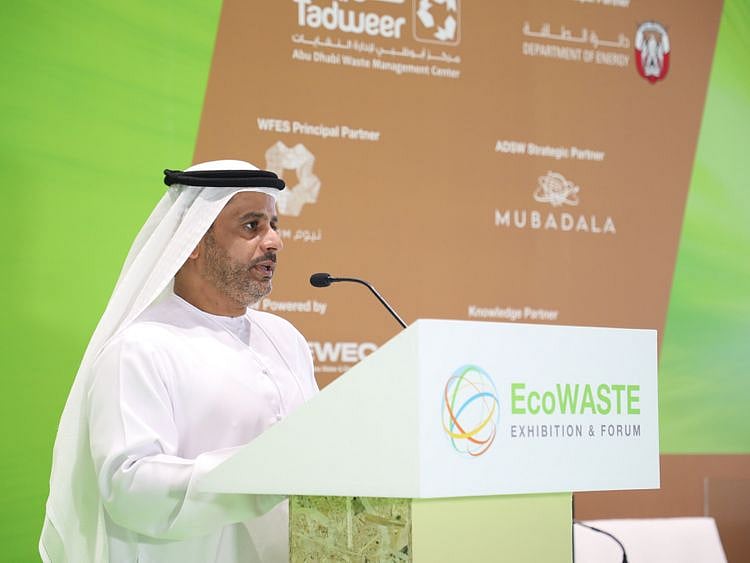Waste sent to landfills in Abu Dhabi reduces by 40 per cent
Tadweer chief also reveals how COVID-contaminated waste is safely disposed

Abu Dhabi: Abu Dhabi Waste Management Centre (Tadweer) has succeeded in reducing the amount of waste sent to landfills by 40 per cent in Abu Dhabi, even as it eyes a target of 80 per cent by 2030.
Dr. Salem Al Kaabi, Director General of the centre made this disclosure on the second day of the eighth edition of EcoWASTE 2022 Exhibition and Forum, held at Abu Dhabi National Exhibition Centre (ADNEC) as part of the Abu Dhabi Sustainability Week (ADSW) yesterday.
He said: “Tadweer aims to release tenders for two projects: converting waste to energy project, and MRF-RDF (Material Recovery Facilities- Refuse Derived Fuel) project during the first quarter of 2022. The centre will complete a series of strategic projects and initiatives during the year. These projects include converting waste into aviation fuel, extracting gas from landfills, establishing engineering cells, issuing ID cards for workers in the pest control and waste management sectors, providing the e-manifest platform to other state establishments, and importing waste from outside the emirate of Abu Dhabi.”
He said that in early 2022, the centre closed all its customer service centres and started providing its services through the TAMM government communication centre’s call centre. It continued to work on the full integration with the Department of Municipalities and Transport (DMT) during this year.
Contaminated waste
Dr Al Kaabi also made a presentation on the centre’s efforts for safely managing and disposing medical waste contaminated with COVID-19, including bandages, toothbrushes, syringes, needles, surgical equipment, blood and tissue testing waste, pharmacies waste, radiation therapy waste, and so on, with an overall capacity of 16 tonnes per day. These efforts have been supported by launching the project for medical waste treatment in Abu Dhabi and the project for collecting, transporting and treating medical waste in Al Ain.
He discussed the challenges that the centre faced while dealing with waste contaminated with COVID-19 and the mechanisms for overcoming these challenges. The centre succeeded in operating the backup processing unit in Abu Dhabi, supplying three mobile incinerators, additional vehicles from environmental services providers in the private sector and other solutions that contributed to the centre’s strategic role in the government’s efforts for confronting the COVID-19 pandemic.
On another panel, he highlighted the importance of managing food waste using advanced technology, in order to reduce carbon emissions, use less energy, reduce costs, and other such benefits.
Sign up for the Daily Briefing
Get the latest news and updates straight to your inbox
Network Links
GN StoreDownload our app
© Al Nisr Publishing LLC 2026. All rights reserved.